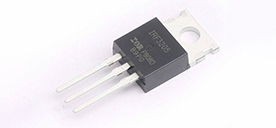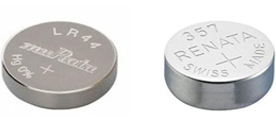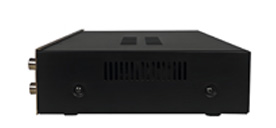Key factors to consider when choosing crystal oscillator type
2024/3/8 9:51:26
Views:
Crystal Oscillator is an electronic component that uses the resonant frequency of the crystal as a stable oscillation source. In electronic engineering, crystal oscillators play a vital role and are widely used in various electronic products such as computers, communication equipment, radio frequency systems, and precision instruments.
The concept and classification of crystal oscillators
1. Crystal oscillator concept
A crystal oscillator is a passive component that excites the crystal to produce mechanical vibration by applying an external electric field or voltage, thereby producing a resonant signal output. Consisting of a crystal resonator and amplifier, it can provide a highly stable clock signal. Compared with traditional LC oscillators, crystal oscillators have better frequency stability and are therefore widely used in fields that require high-precision clock signals.
2. Crystal oscillator classification
Depending on the crystal structure and oscillation mode, crystal oscillators can be divided into the following main types:
- Quartz crystal oscillator: Quartz crystal oscillator generates a stable oscillation frequency by utilizing the oscillation characteristics of quartz crystal. It has the advantages of high stability, low temperature drift and low phase noise, and is suitable for occasions that require high accuracy of clock signals.
- Ceramic crystal oscillator: Using ceramic materials instead of quartz as the oscillator element, it has the characteristics of small size and low cost. However, compared with quartz crystal oscillators, its frequency stability and temperature characteristics may be poorer.
- Surface acoustic wave crystal oscillator: Utilizes surface acoustic wave propagation characteristics to achieve oscillation, suitable for some low-power, miniaturized applications. Its frequency stability is better, but its output power is lower.
- Filtered crystal oscillator: combines the functions of crystal oscillator and filter, which not only provides a stable clock signal, but also filters interference components in the input signal to ensure the purity of the output signal.
- Temperature compensated crystal oscillator: TCXO offsets the impact of temperature changes on frequency stability by introducing a temperature sensor and temperature compensation circuit into the crystal oscillator. It can maintain high frequency stability even when the ambient temperature changes greatly.
3. The difference between various types of crystal oscillators
- Stability: Quartz crystal oscillators generally have higher frequency stability than other types of crystal oscillators.
- Cost: Ceramic crystal oscillators are relatively cheap and suitable for some applications that have lower cost requirements.
- Volume: Surface acoustic wave crystal oscillators and filter crystal oscillators are usually small in size and suitable for compact space designs.
- Power consumption: Surface acoustic wave crystal oscillators usually have lower power consumption and are suitable for some application scenarios with strict power consumption requirements.
- Temperature characteristics: TCXO has better frequency stability under temperature changes and can maintain high accuracy.
- Frequency range: Different types of crystal oscillators may have different frequency ranges. Choosing the appropriate crystal oscillator type depends on the specific application requirements.
Choosing a suitable crystal oscillator type requires comprehensive consideration of factors such as frequency stability, cost, power consumption, volume and temperature characteristics. Different types of crystal oscillators have their own advantages and disadvantages and are suitable for different application scenarios.
As a key passive component in the electronic field, crystal oscillator provides stable clock signals for various electronic products. By having an in-depth understanding of the principles of crystal oscillators and the differences between different types, you can better choose the type of crystal oscillator that suits your specific application needs, thereby ensuring the performance and stability of your electronic products.
The concept and classification of crystal oscillators
1. Crystal oscillator concept
A crystal oscillator is a passive component that excites the crystal to produce mechanical vibration by applying an external electric field or voltage, thereby producing a resonant signal output. Consisting of a crystal resonator and amplifier, it can provide a highly stable clock signal. Compared with traditional LC oscillators, crystal oscillators have better frequency stability and are therefore widely used in fields that require high-precision clock signals.
2. Crystal oscillator classification
Depending on the crystal structure and oscillation mode, crystal oscillators can be divided into the following main types:
- Quartz crystal oscillator: Quartz crystal oscillator generates a stable oscillation frequency by utilizing the oscillation characteristics of quartz crystal. It has the advantages of high stability, low temperature drift and low phase noise, and is suitable for occasions that require high accuracy of clock signals.
- Ceramic crystal oscillator: Using ceramic materials instead of quartz as the oscillator element, it has the characteristics of small size and low cost. However, compared with quartz crystal oscillators, its frequency stability and temperature characteristics may be poorer.
- Surface acoustic wave crystal oscillator: Utilizes surface acoustic wave propagation characteristics to achieve oscillation, suitable for some low-power, miniaturized applications. Its frequency stability is better, but its output power is lower.
- Filtered crystal oscillator: combines the functions of crystal oscillator and filter, which not only provides a stable clock signal, but also filters interference components in the input signal to ensure the purity of the output signal.
- Temperature compensated crystal oscillator: TCXO offsets the impact of temperature changes on frequency stability by introducing a temperature sensor and temperature compensation circuit into the crystal oscillator. It can maintain high frequency stability even when the ambient temperature changes greatly.
3. The difference between various types of crystal oscillators
- Stability: Quartz crystal oscillators generally have higher frequency stability than other types of crystal oscillators.
- Cost: Ceramic crystal oscillators are relatively cheap and suitable for some applications that have lower cost requirements.
- Volume: Surface acoustic wave crystal oscillators and filter crystal oscillators are usually small in size and suitable for compact space designs.
- Power consumption: Surface acoustic wave crystal oscillators usually have lower power consumption and are suitable for some application scenarios with strict power consumption requirements.
- Temperature characteristics: TCXO has better frequency stability under temperature changes and can maintain high accuracy.
- Frequency range: Different types of crystal oscillators may have different frequency ranges. Choosing the appropriate crystal oscillator type depends on the specific application requirements.
Choosing a suitable crystal oscillator type requires comprehensive consideration of factors such as frequency stability, cost, power consumption, volume and temperature characteristics. Different types of crystal oscillators have their own advantages and disadvantages and are suitable for different application scenarios.
As a key passive component in the electronic field, crystal oscillator provides stable clock signals for various electronic products. By having an in-depth understanding of the principles of crystal oscillators and the differences between different types, you can better choose the type of crystal oscillator that suits your specific application needs, thereby ensuring the performance and stability of your electronic products.
Related Information
-
-
Phone
+86 135 3401 3447 -
Whatsapp





